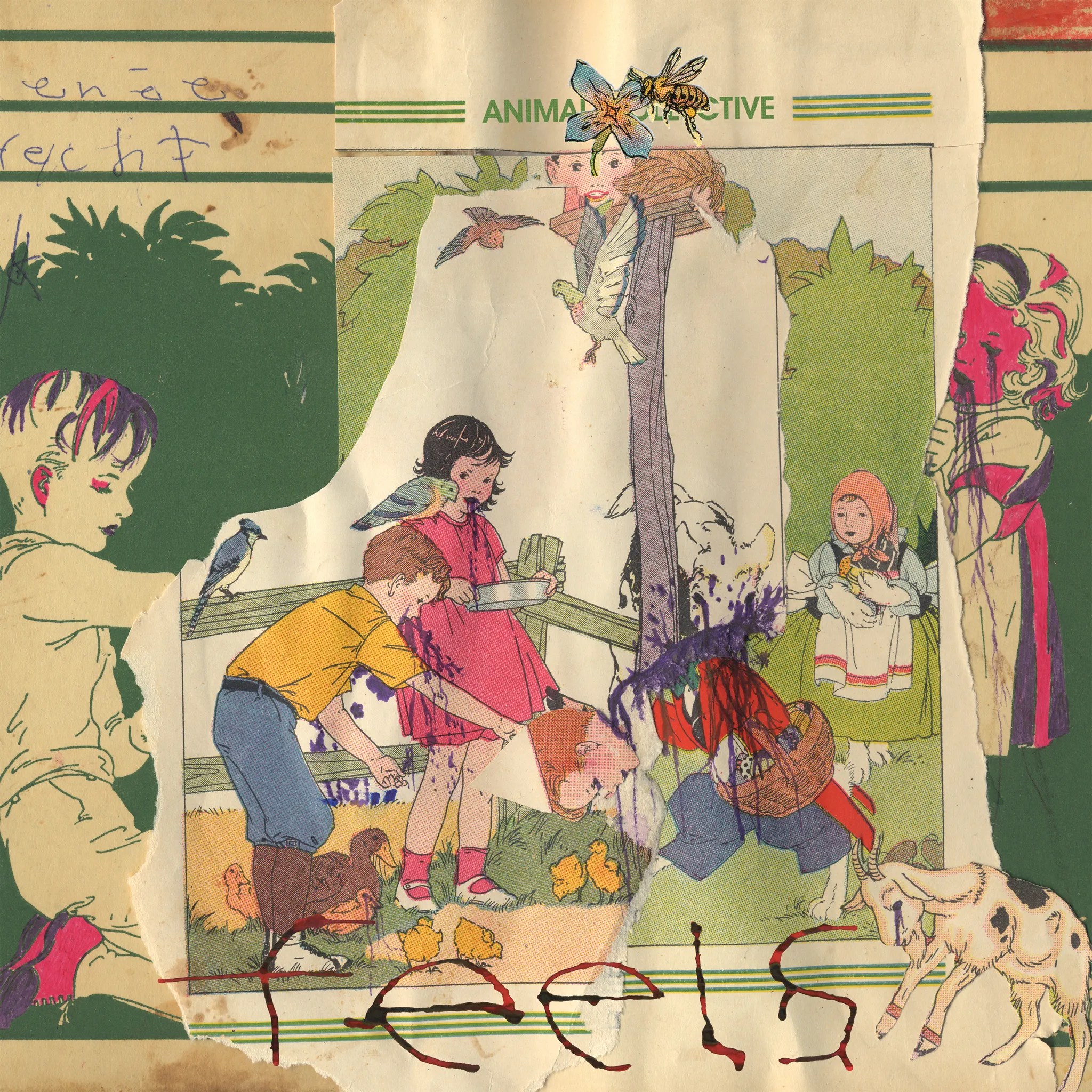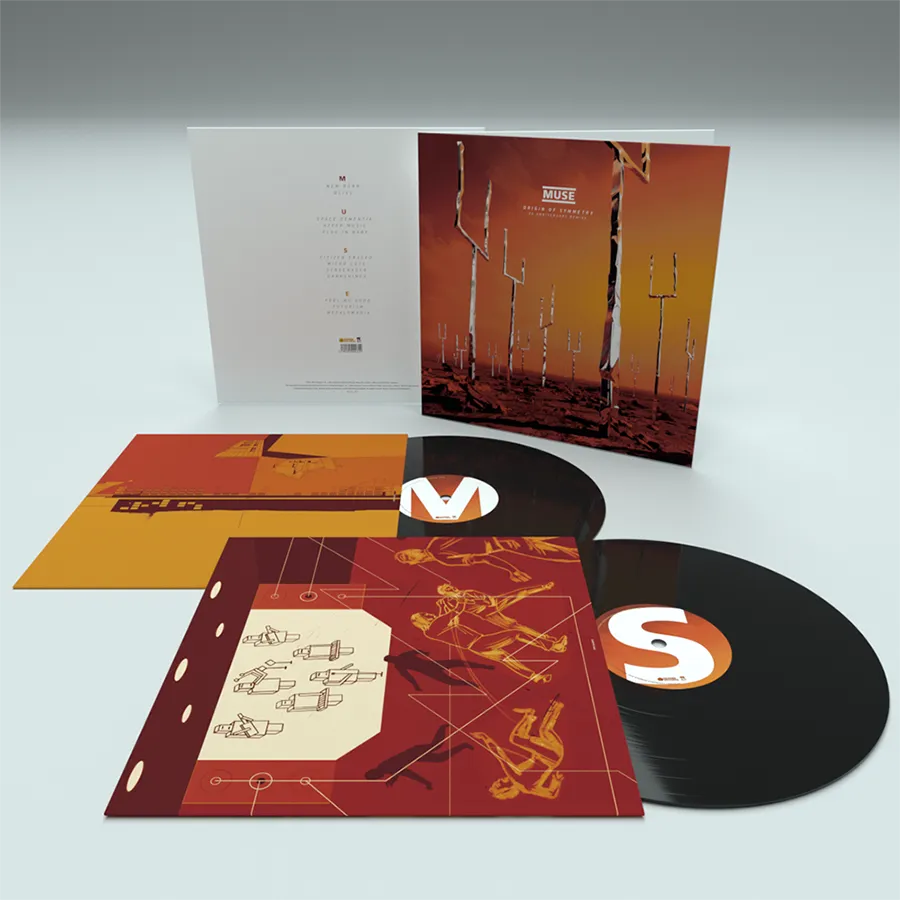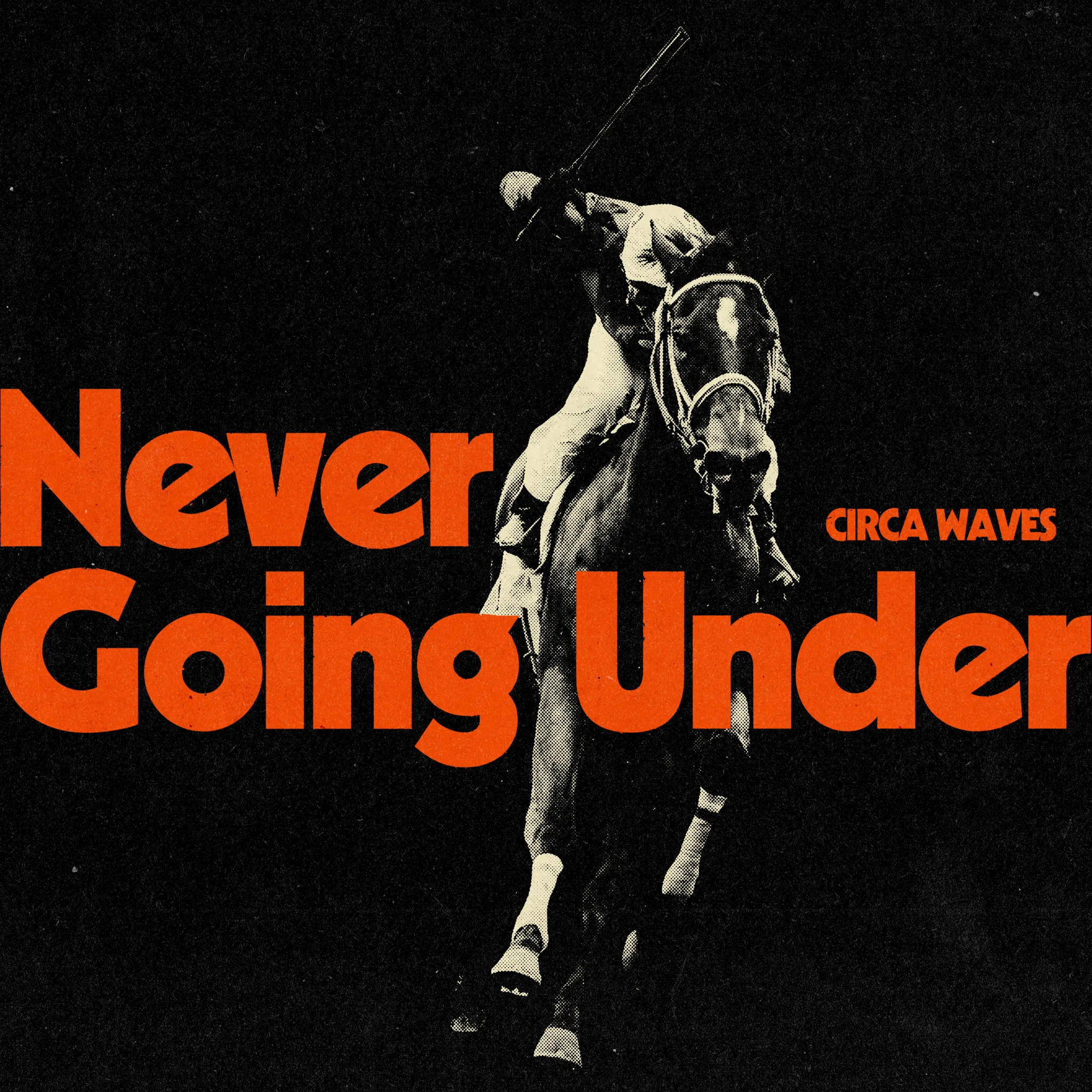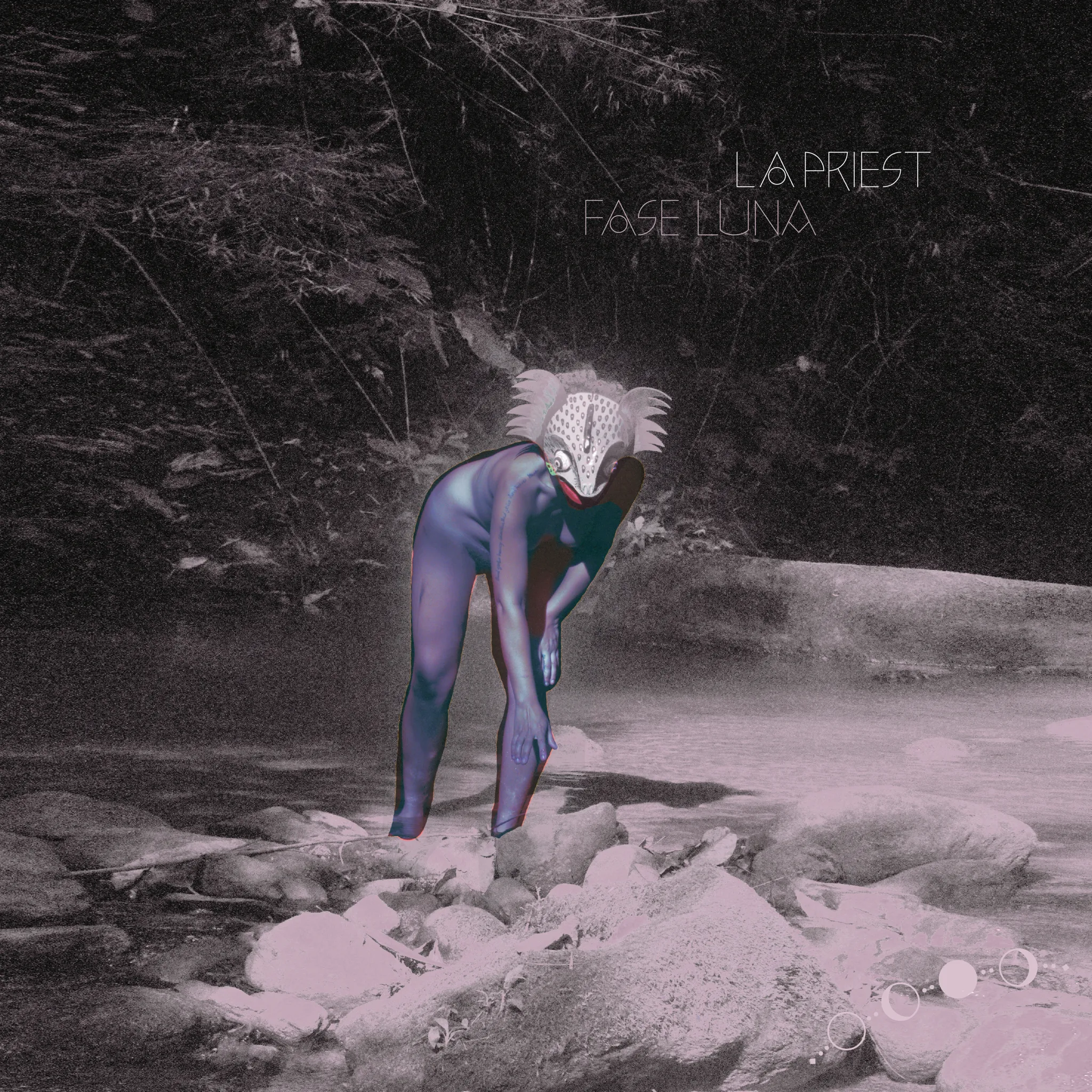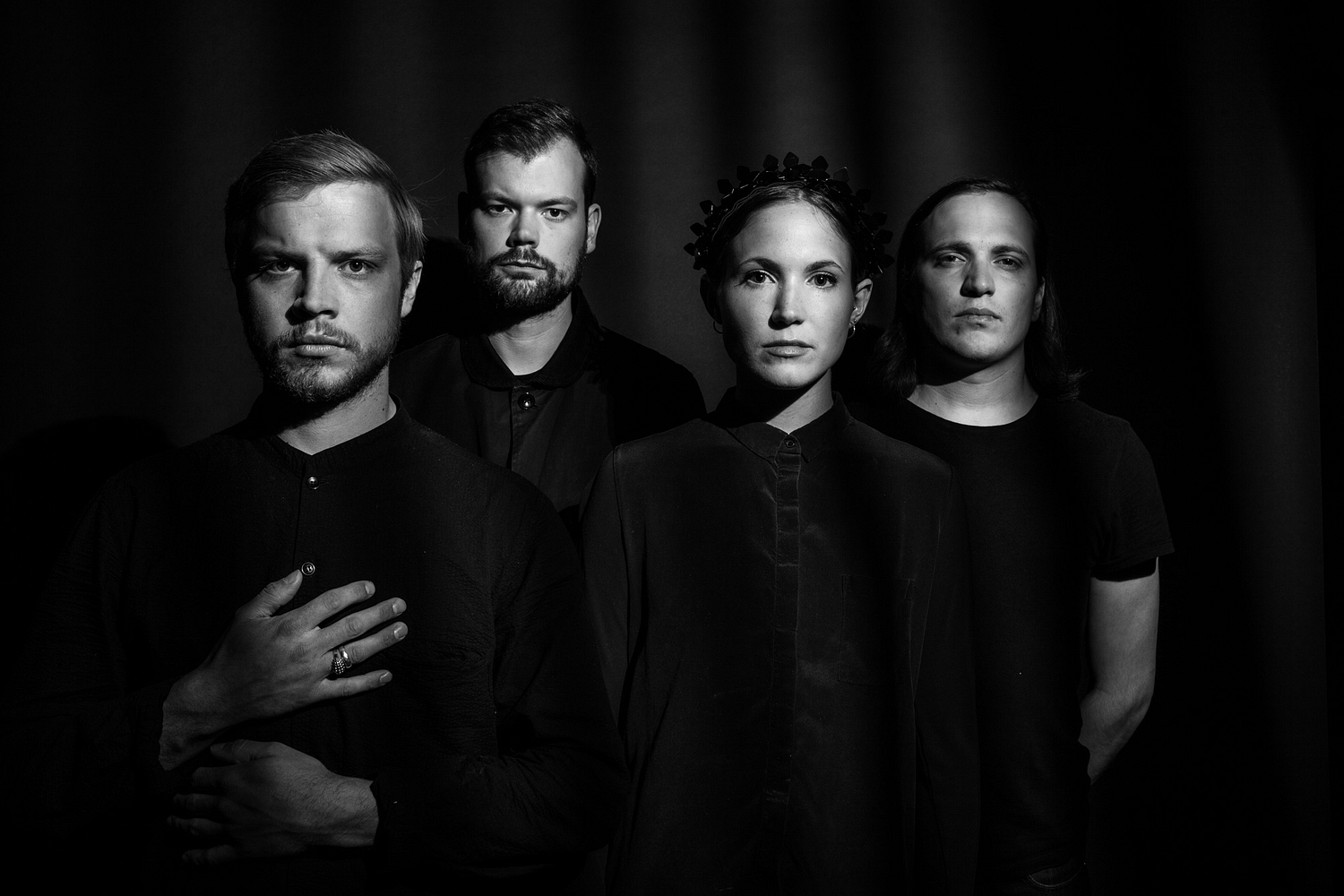
Interview Woman’s Hour: “We knew deep down we wanted to get to this place”
The beginning of Woman’s Hour started with a conversation. For their debut album, they’re ready to have a whole lot more.
Woman’s Hour’s journey so far hasn’t followed the strict path many new bands wind up on. Even now, whereas technically a group might be past the ‘beginning stage’ following the release of their debut, they’re still working things out, forging their own route.
When they started out, they were based in Kendal, with one single to their name. Then followed a deathly silence. Behind the scenes, they were creating the beginnings of their debut record. They said no to labels, gigs, any semblance of sanity. They sat down and had a conversation outside of their regular rehearsal space and decided, collectively, that this whole band business was going to be a long haul.
“The most important thing was choosing to do it, choosing to fully commit to it,” says guitarist Will Burgess, three years on. His sister, vocalist Fiona, affirms: “From that point forward, there was this commitment that none of us had dared to have.”
Perhaps that’s what it takes these days for a promising group to fulfil all their goals. Woman’s Hour are only starting, but they stand out from a pack of newcomers who might release a couple of hype-baiting singles before disappearing off the face of the earth.
With ‘Conversations’, the now London-based four piece are convinced that this first work isn’t the be all and end all. A slick, meticulously constructed first work, it’s also an album that not a single member of the band has listened to since its completion. Instead attention has turned to getting a live drummer, making songs that reflect a certain “freedom” and “sense of fun”. No doubt attention should be paid to this debut - it’s an impressive first work - but if there’s any example required of why Woman’s Hour are where they are today, that’s it: they look forward, incapable of doing anything else.
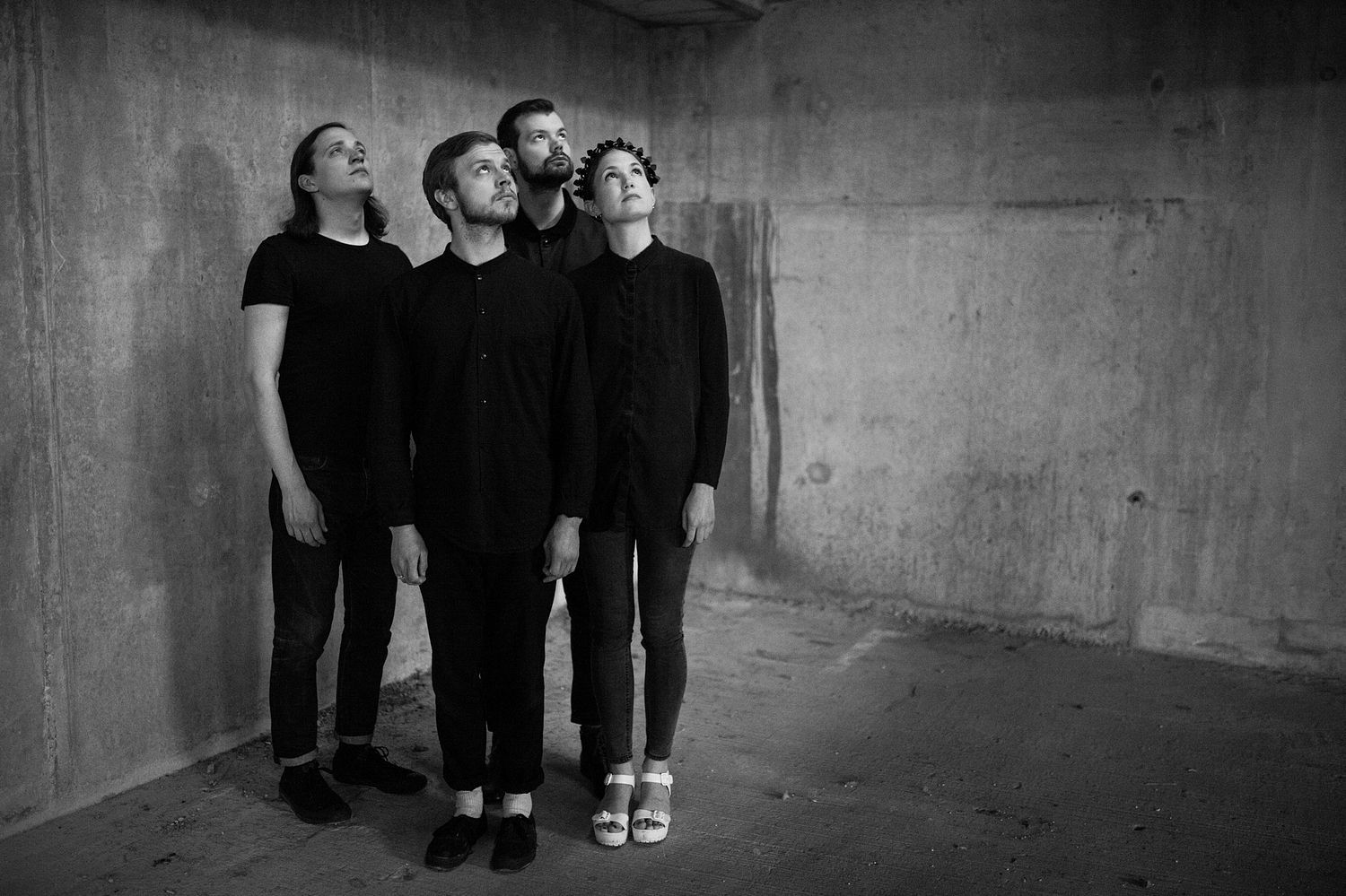
“There was this commitment that none of us had dared to have.”
— Fiona Burgess
The signs were there from the start. Even when Woman’s Hour were in their baby stages, they had a presence about them. Two years on and they’re even further away from the rest of the pack. On stage they’re surrounded by the giant pyramid shapes that grace their debut album cover. Fiona wears a striking headdress that - when combined with the group’s all-black attire - gives off a strange authority. They stand out, and they always have done.
“None of us knew what we were getting ourselves into,” claims Josh Hunnisett (keyboards), about the very conversation that helped shaped things. “It’s all-encompassing, it really is,” he says. The record, explains Fiona, “captures a moment in time” - “It was incredible. It was intense. It was one of the most amazing experiences of my life.”
“Likewise!” jokes Will with a gigantic sigh and roll of the eyes. This album took everything out of them. They had to work full-time day jobs before working in the evenings with producer Tom Morris. Night creatures going about their work with meticulous degree, the four of them were constrained by logistics, in some senses (“It was about making something while surviving as an artist, which is tough,” says Fiona). Every inch of life poured into it has been worth it, they collectively stress. “There have been some beautiful moments where you’re in the zone, where something clicks and you forget about your bank balance and you forget about everything else, everything that you’ve lost,” says Will. “It’s like ‘This is perfect’. And you cling onto that. You look at that vinyl for the first time and you say, ‘You know what, I’m glad I didn’t go on that night out and forget to go to the studio the next day.”
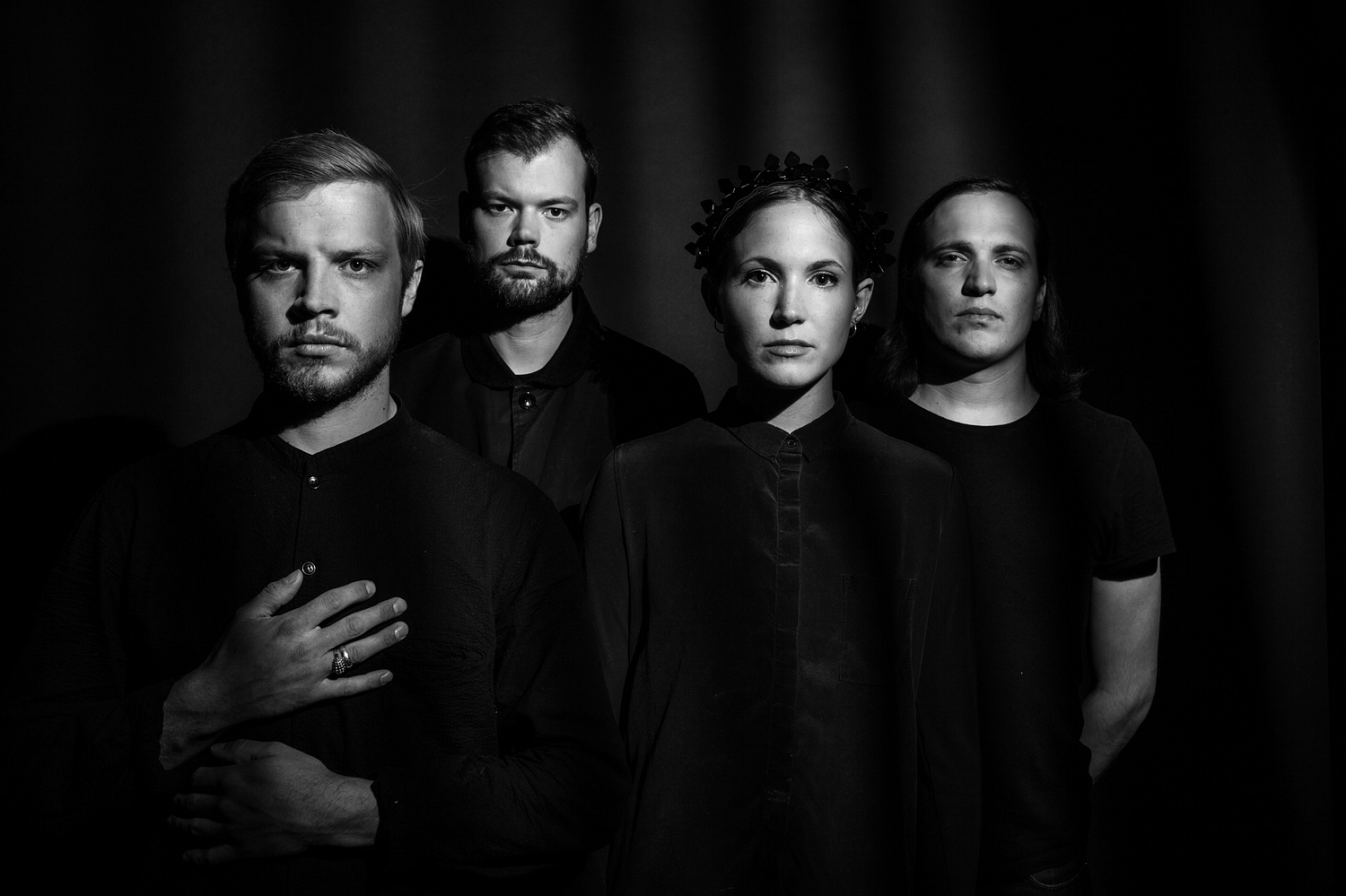
‘Conservations’ is exciting in two distinct senses. One, it’s hard to pinpoint a record made by another British band that sounds remotely like this. It ought to be a Mercury Prize shoe-in. The second aspect is that this is an album made in controlled circumstances. Now the band are learning their trade live, they’re discovering bits of the songs that didn’t emerge in a studio setting. The three years that preceded mean very little in comparison to what lies ahead - this initial commitment to the project has taken on a life of its own. “Thinking about the last record and playing it live, it almost acts as a stimulus for the next one,” argues Josh.
“However stressful it can be and however overwhelming it can sometimes feel, I’m just so passionate about it,” says Fiona, who admits: “I knew deep down I wanted to get to this place.”
“I’d be gutted to think that this record was the best record we’re gonna make. Certainly not. I hope there’s a growth. And I find the word ‘best’ weird anyway - surely it’s just different. I’m already thinking about the future. Rather than reflecting on what we’ve done I’m using it as a springboard to channel other things and explore other things.”
On a similar level, all four are still balancing the band with day jobs. It’s “two full-time jobs at the same time,” jokes Will, his sister claiming that there’s a “taboo” about bands admitting that they’re still having to pay the bills while attempting to tour the world. “There’s a pressure to not talk about it. Often you get this facade of seeing us from the outside - even with friends who don’t know us so well in our day-to-day lives - they assume that we’re supporting ourselves with this,” she says. “Doing this - it’s not something that’s been handed to us now we’ve got a debut album. We’ve chosen to live in the most expensive city in Europe. It’s great on the one hand because it’s so easy to communicate, but on the other hand it’s expensive. That’s a reality that’s often glossed over.”
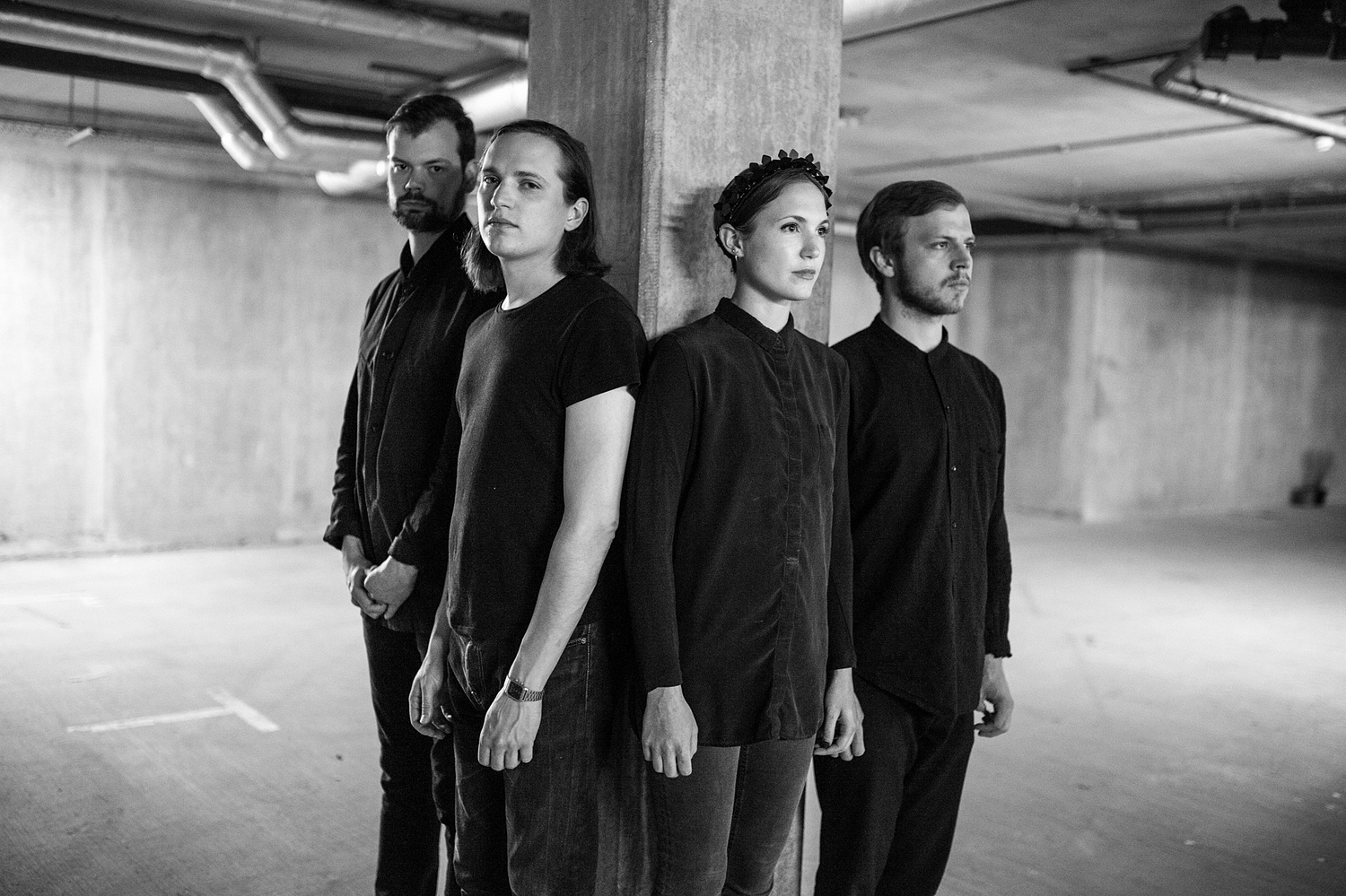
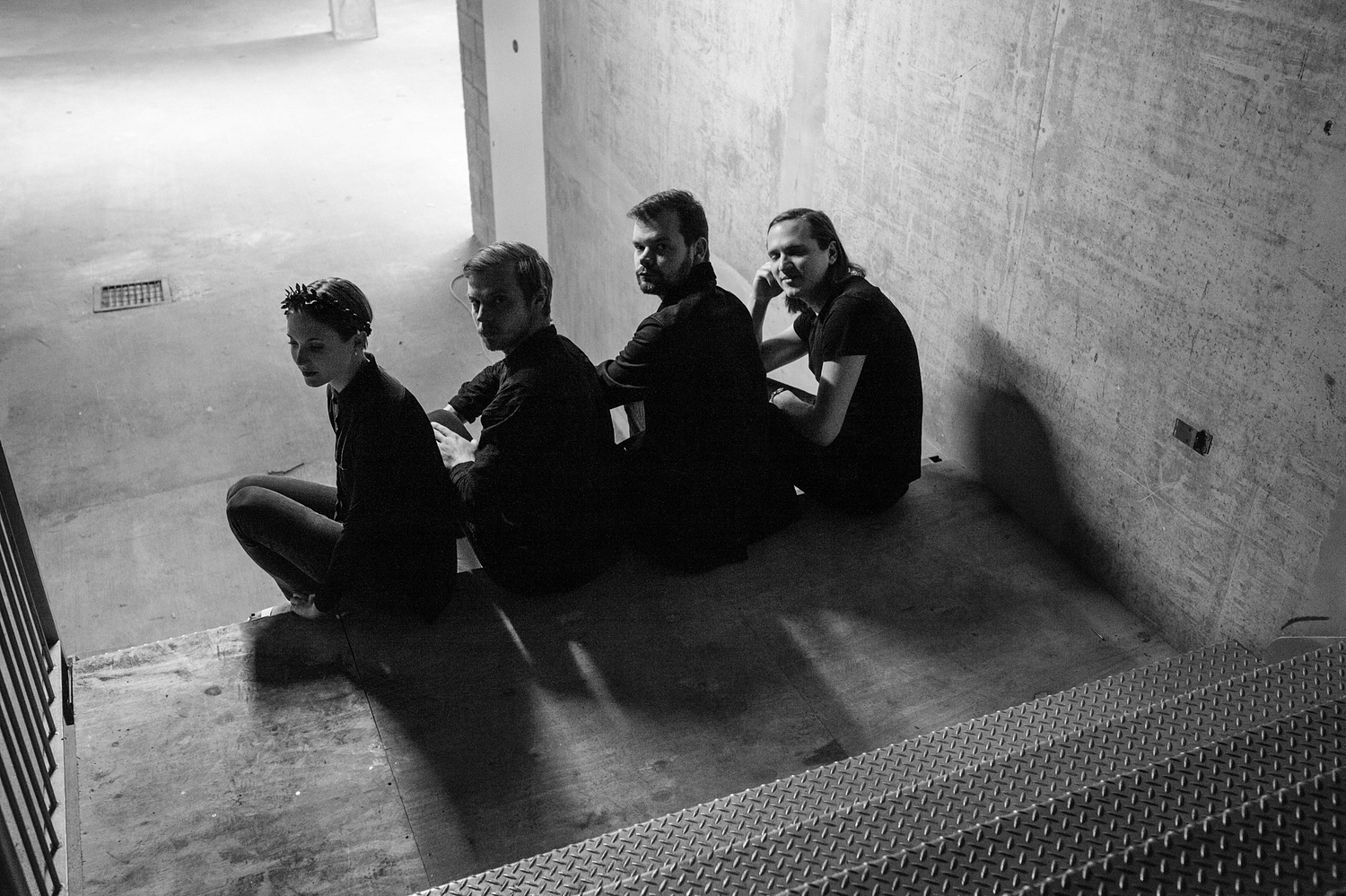
“When you put so much of your heart and soul into something, there’s a danger of being hurt and putting yourself on the line.”
— Fiona Burgess
Still, it’s exciting to see a band so pointedly obsessed with the future. Only once in what amasses to a two hour interview, do they give the slightest inclination that they’re the types to reflect. “Do you think you find yourself wanting to change things?,” Will asks the rest of the band. “Wanting to change the record? All I’m worried about is we’d find an incredible new section suddenly that we could have put in.” There’s a silence that’s swiftly cut short when Fiona says, “That’s not the way I think. That thing is done. I get so much fulfilment being a part of this process. You can eventually look back and reflect.”
Woman’s Hour have been called perfectionists before, and that’s a natural result of making a record that sounds so tightly-packed, precise in its delivery. The title-track is all sharp arpeggios and exact application. ‘Her Ghost’ wouldn’t be nearly as affecting if its moments of silence didn’t carry so much purpose.
But there are parts to this debut that sound free, that shun the perfectionist tag. ‘Our Love Has No Rhythm’ - an early single - has been re-recorded, this time closing with a lifting, euphoric solo that could wind off until eternity. ‘Two Sides Of You’ is Fiona’s most passionate performance yet, where lyrics crackle and shake under an emotional weight. It’s the sound of a band finding their freedom as they go along. “We’ve realised making this record that we do want more [freedom],” says Josh. “Some mornings we’d get fucking frustrated with tracks and we went ‘Right, let’s do something completely stupid’,” reflects Will. “We’d try scratching our heads around drums for ages, then somebody would go into the other room with a cabasa - Fiona’s incredible with the shaker!”
It’s strange to think that had Woman’s Hour simply not returned from their year out of the spotlight back in 2012, very few would have batted an eyelid. Hype works in cruel ways - two head-turning tracks don’t account for a twelve month absence. Thankfully, these four took that reality into account and still went with their guts. They returned with songs that represented who they wanted to be after a process of discovery. “There’s been a vulnerability of going, ‘I’m fucking giving this my all. I’m open to criticism,’” says Fiona.
“When you put so much of your heart and soul into something, there’s a danger of being hurt and putting yourself on your line. It took us a lot of time to dare to do that. You’ve got to stop a lot of other stuff in your life in order to make this thing live and breathe. I thrive off it. I love it and I feel so lucky.”
Taken from the July issue of DIY, out now. Woman’s Hour play this year’s Latitude Festival. DIY is the official partner of Latitude 2014. We’ll be bringing you extensive coverage from in and around the festival - look out for copies of the July 2014 issue in the Latitude supermarket, too!
Read More

Pick of the Pops: artists’ albums of 2019
Who have been your faves' faves of 2019?
16th December 2019, 12:00am
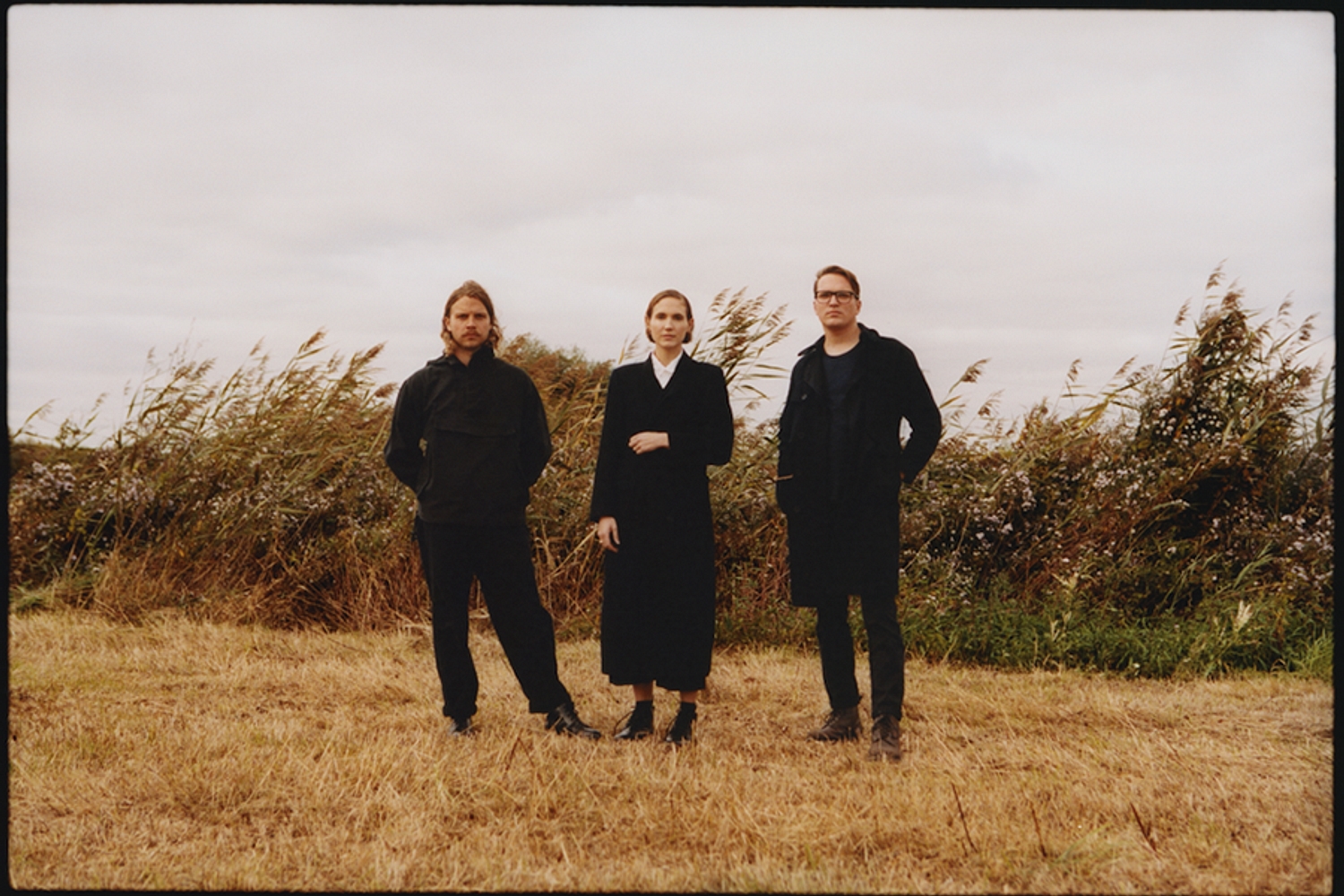
Woman’s Hour have broken up, but leave behind a true gift
'Ephyra' is the band's final act, but adds a beautiful full stop to their legacy.
18th February 2019, 12:00am
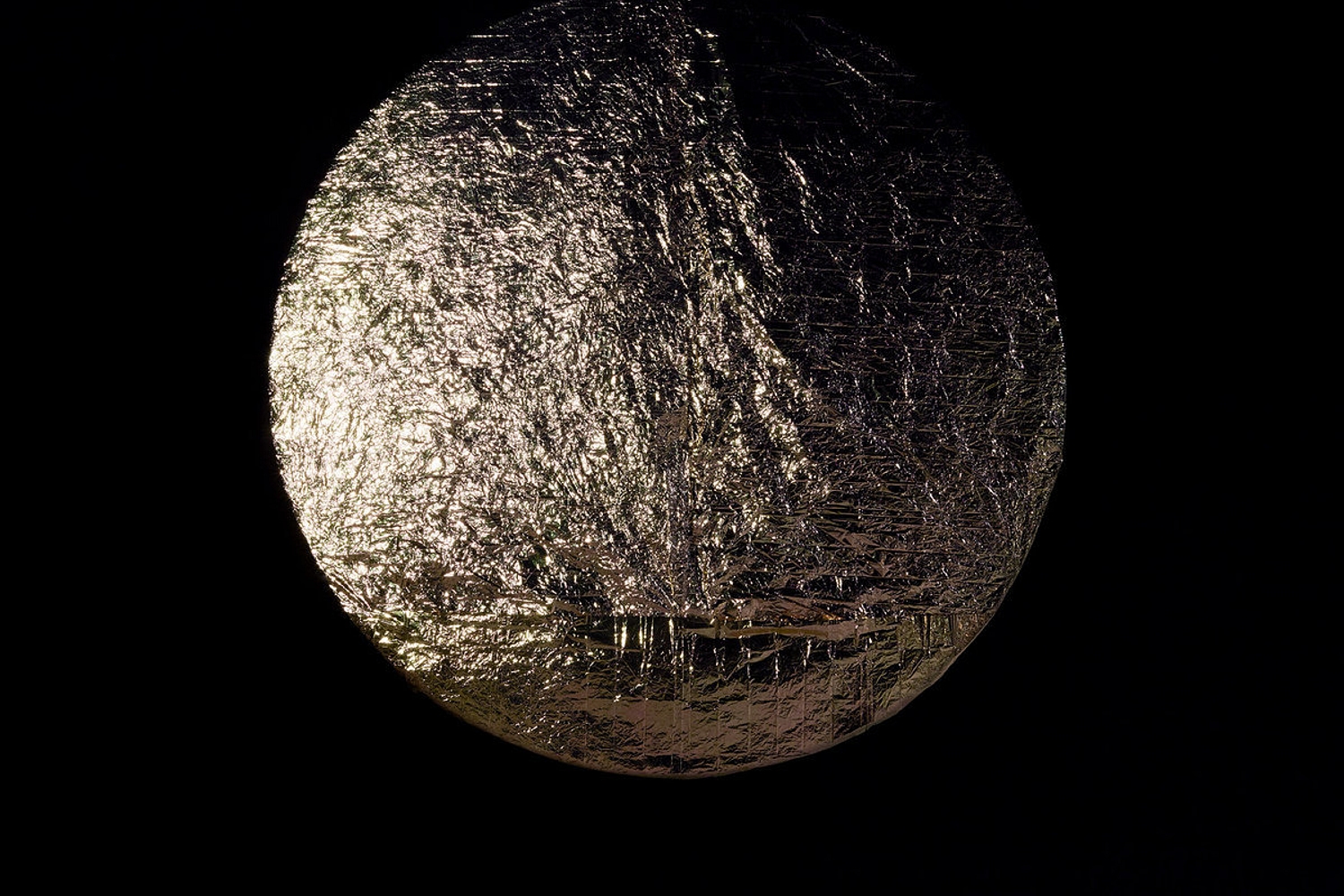
Woman’s Hour - Ephyra
4 Stars
They've created something truly special in these final throes.
12th February 2019, 1:39pm

Woman’s Hour share new track ‘Luke’, announce UK tour
The band are set to release their new album 'Ephyra' next month.
30th January 2019, 12:00am
With Bob Vylan, St Vincent, girl in red, Lizzy McAlpine and more.
